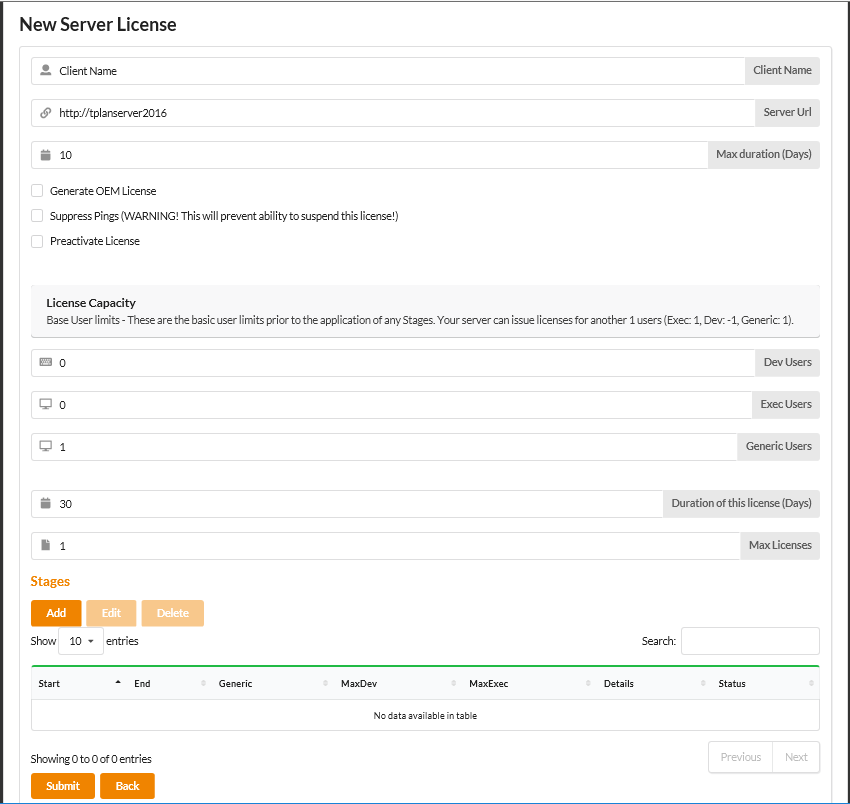Creating a New Server License
If your License Server is licensed as a "Master" or OEM server you will have the ability to create server licenses. This is the ability to create a License Server license which you can distribute to clients and/or partners who require to run their own License Server locally or internally. These licenses can then be sent out and applied into a new License Server installation with minimal configuration required.
The other benefit of creating 'child license servers' is that you can maintain that server remotely to a degree. For example you can push license updates automatically to increase/decrease license allowances as well as Suspending license servers.
In order to create a server license you must first select the "Issued Licenses" tab, from where you select the "New Server License" button.
This presents you with the New Server License page as follows:
The available fields are as follows:
- Client Name - This is the name of the client that will be installing the License Server. This will also become their "Account Name" required for their future logon to their License Server.
- Server URL - This is the URL of the 'parent' license server. This will allow the remote administration between the 'parent' and 'child' servers. It should be prepopulated with your current server url.
- Max Duration - This value represents the maximum duration of session licenses that can be created within the child license server.
- *Generate OEM License - Do you wish for the child license server to have OEM capability (i.e. the ability to create further child license servers)
- *Suppress Pings - This will prevent the child license server ever communicating back to the parent server, therefore running as an 'offline' server.
- Preactivate License - Offline license servers will need to be provided with a preactivated license based on their License Code.
- Dev Users - The maximum number of Developer sessions that will be allocated within the License Server.
- Exec Users - The maximum number of Robot Execution sessions that will be allocated within the License Server.
- Generic Users - The maximum number of Robot Developer and/or Execution sessions that will be allocated within the License Server.
- Duration of this license - How long until the License Server itself and the contained Robot license will expire.
- Max Licenses - The maximum number of licenses that can be created within the child license server.
- Stages - License allowances can be controlled through Stages. This allows to temporarily increase and decrease licenses based on time periods.

